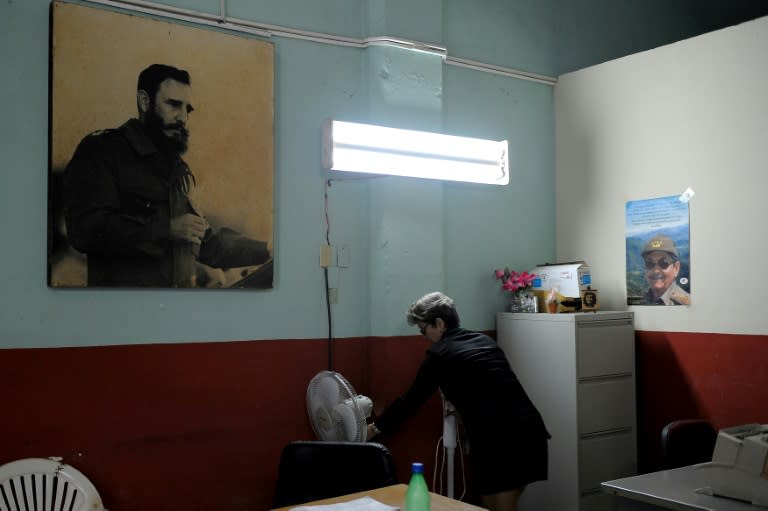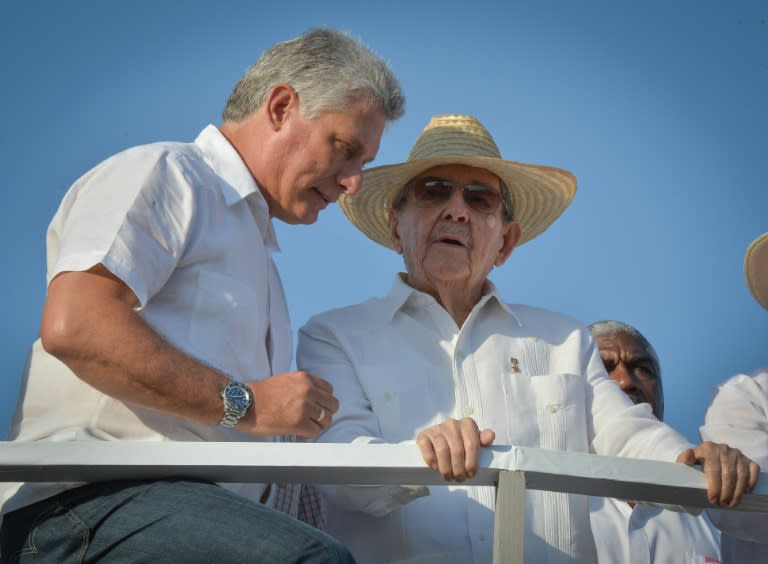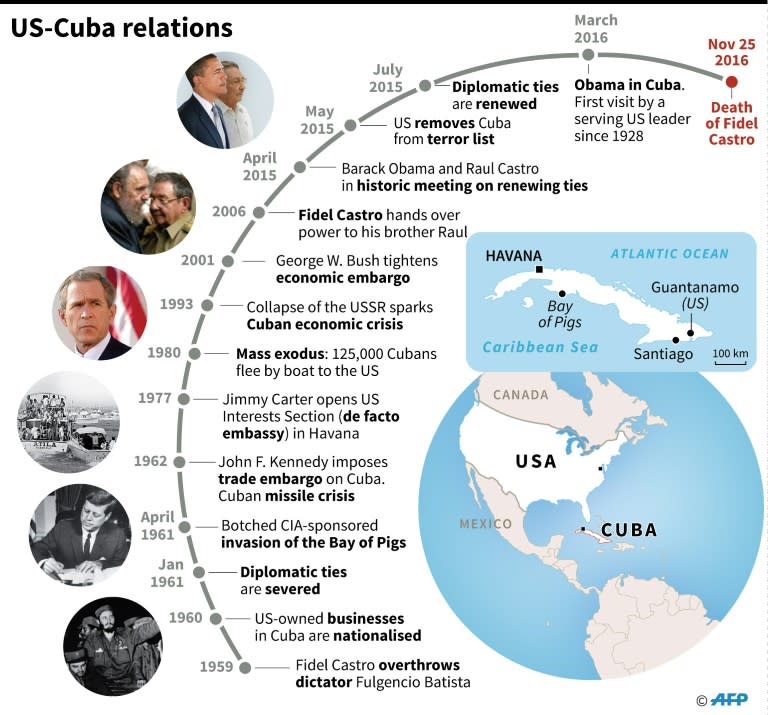Three challenges for Cuba's Raul Castro in his last year
Raul Castro says he will step aside as Cuba's president a year from now. Here are three challenges facing the island as it prepares for the handover: - Economy - Castro took over in 2006 from his brother Fidel, who died last November. The president has gradually liberalized the economy -- but the benefits have been slower to come than expected. The economy has grown 2.3 percent on average over the past eight years, less than the 4.4 percent forecast. It shrank 0.9 percent last year due to a crisis in key partner Venezuela. Castro has expanded the private sector and courted foreign investment, but his government has acknowledged that bureaucracy is impeding that effort. The country aimed to draw up to $2.5 billion of investment a year but is only receiving about $418 million, says Cuban economist Carmelo Mesa-Lago at the University of Pittsburgh. Castro has also not yet fulfilled a promise to scrap the dual currency system, which fuels inflation. "Monetary unification will be difficult to implement in 2017 because the economy will probably see very low growth" and the budget deficit is high, Mesa-Lago said. A change of leader risks slowing down the economic reforms even further, said Arturo Lopez-Levy, an academic at the University of Texas - Rio Grande Valley. "It is hard to imagine that any other leader would have more political berth and authority than Raul Castro to accelerate the opening of private enterprise, the replacement of the system of ration books with a better system of subsidies for the most needy, and monetary unification." - Politics - The ruling party is scheduled on February 24, 2017 to elect a new council of state and president. Castro's successor remains to be determined, raising political uncertainty in the island of 11 million people. "It would not be surprising to see an internal dispute" over the presidency, said Michael Shifter, president of the Inter-American Dialogue, a Washington-based think tank. "The current vice-president Miguel Diaz-Canel may be considered a natural successor, but it is not certain." A prominent member of the ruling Communist Party, the 56-year-old Diaz-Canel has ministerial experience but lacks influence in the armed forces, analysts say. "He has a low profile with regard to the decisive issues for the country: economic reform, defense and foreign policy -- for example, relations with the United States," said Lopez-Levy. Other possible candidates include Foreign Minister Bruno Rodriguez, 59, and Castro's son Alejandro, who is 51. Raul Castro has said that in any case, he will remain secretary of the all-powerful party until 2021. In that role, he will be able to "take the heat out of any internal disputes," said Lopez-Levy. - Trump - Relations with the United States, Cuba's Cold War foe, thawed under former president Barack Obama, but his successor Donald Trump could change that. "Trump's vision is of a harder negotiating style," said Lopez-Levy. "He could hamper possible progress but it is hard to see how he would change Cuba's stance, which is to resist and not give in to pressure." Under Obama, diplomatic relations were restored and commercial flights and cruises between the two countries resumed. Trump has threatened to reverse some of the accords if Cuba does not make more concessions, notably on human rights -- an issue on which it refuses to be lectured. "If Trump demands a lot of the Cuban government, that could be counter-productive," said Shifter. "It could generate a strong nationalist reaction and could end up boosting the hardliners and delaying further reforms."





